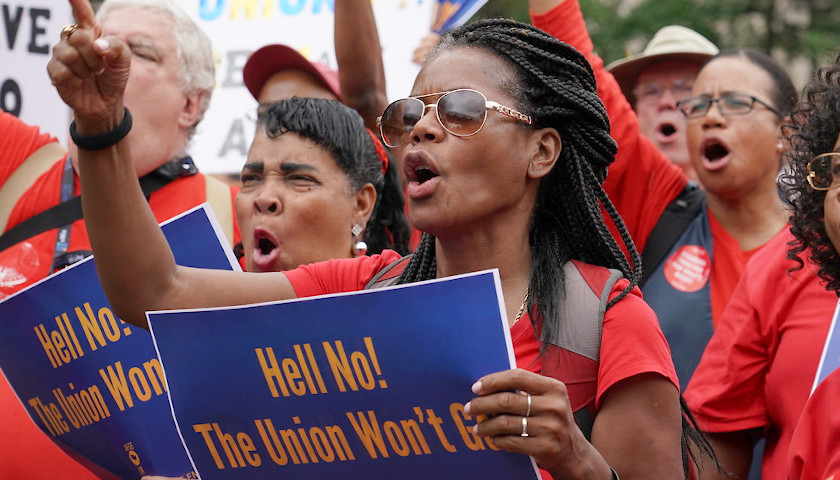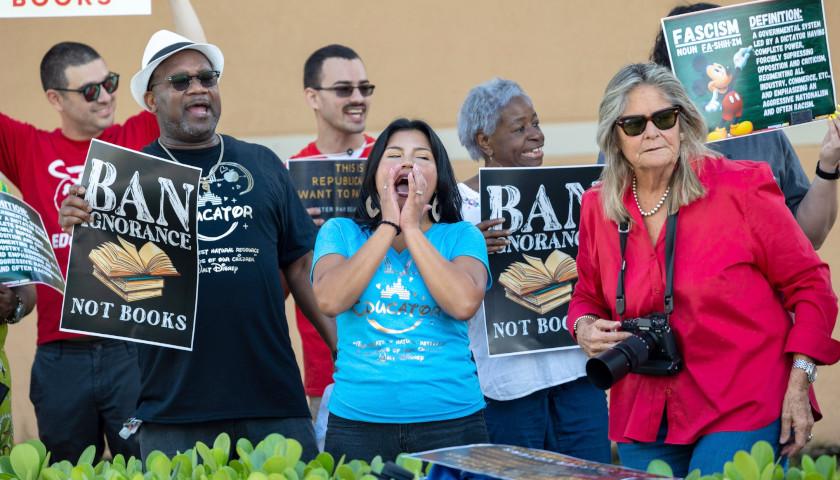by Anthony Hennen
In a setback for public-sector unions, a consent order could upend Pennsylvania’s fair share fee laws, which require non-union workers to pay a fee similar to union dues.
The consent order, issued on May 23 by the Court of Common Pleas of Lancaster County, declared the state’s fair share fee law unconstitutional under the U.S. Supreme Court’s 2018 decision in Janus v. American Federation of State, County, and Municipal Employees.
The plaintiffs, public schoolteachers Jane Ladley and Christopher Meier, filed a lawsuit against the Pennsylvania State Education Association eight years ago because they opposed paying a fair share fee to the union as a requirement for public employment.
The PSEA is the state’s largest teachers union.
“This judgment is a long-overdue victory for teachers and other public employees,” Ladley said in a press release. “I believe union officials have been fighting to keep so-called ‘fair share’ fee provisions in contracts to confuse employees who don’t know their rights. Now, there’s a court order that should stop union officials in their tracks if they try to collect those fees.”
Ladley, now retired, and Meier objected to the fee on religious grounds; state law allowed religious objectors to send their fees to a charity instead. However, PSEA officials rejected their selected charities, saying the charity must be one that was approved by the union.
After the Janus ruling, the union returned their money, but kept the fair share fee in at least 20 collective bargaining contracts.
“This is a major win for our clients, especially since PSEA affiliates have been including ‘fair share’ fee provisions in teacher contracts even after ‘fair share’ fees were prohibited by the Supreme Court,” said Nathan McGrath, president and general counsel for the Fairness Center, a public-interest law firm that focuses on public-sector union cases. “Our clients are thrilled to have successfully defended their rights, having fought for so long, even four years after the Janus decision.”
The judgment doesn’t repeal Pennsylvania’s fair share fee law, but it establishes a warning of sorts.
“Any union official trying to enforce that law is now on notice that the law violates the Constitution,” McGrath said.
The PSEA could not be reached for comment by the time of publication.
– – –
Anthony Hennen is a reporter for The Center Square. Previously, he worked for Philadelphia Weekly and the James G. Martin Center for Academic Renewal. He is managing editor of Expatalachians, a journalism project focused on the Appalachian region.
Photo “Union Protest” by AFGE. CC BY 2.0.





